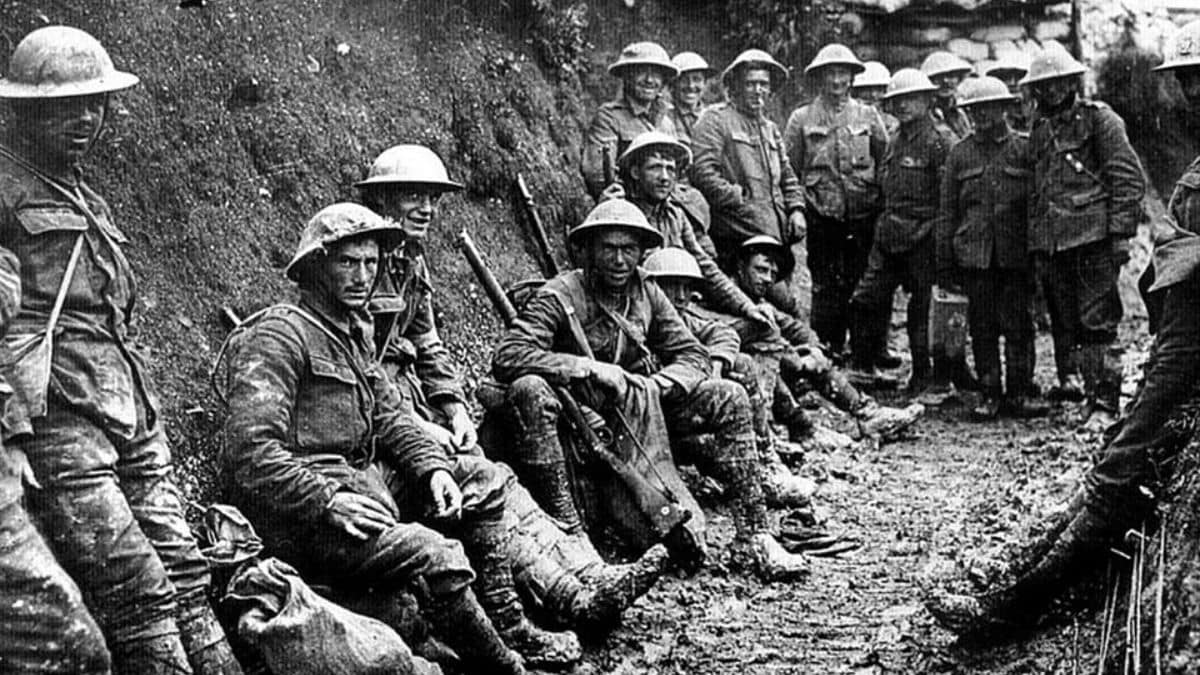Britain entered World War I after declaring war on Germany on August 4, 1914. This was a direct response to Germany’s invasion of Belgium, a neutral country whose independence Britain had pledged to protect under the 1839 Treaty of London. On this day in 1944, Anne Frank was captured along with seven others by the Gestaporead more
World War I was an event that changed the course of history forever. It all began when the
Austro-Hungarian Empire attacked Serbia following the assassination of Austrian Archduke Franz Ferdinand in 1914. While the war was at its peak, Britain joined it on August 4, 1914, in a bid to protect Belgium from German forces.
If you are a history geek who loves to learn about important events from the past, Firstpost Explainers’ ongoing series,
History Today, will be your one-stop destination to explore key events.
STORY CONTINUES BELOW THIS AD
On this day in 1944, diarist Anne Frank, along with seven others, was captured after being discovered from the Secret Annexe in Amsterdam. In 2012, Oscar Pistorius made history by becoming the first double amputee to compete in the Olympic Games.
Here is all that happened on this day.
Britain declared war on Germany
It was on August 4, 1914, that Britain marked its entry into
World War I following its declaration of war on Germany. The immediate cause was Germany’s invasion of Belgium, a neutral country whose independence Britain had pledged to protect under the 1839 Treaty of London. Germany’s military strategy involved sweeping through Belgium to quickly attack France. Britain issued an ultimatum demanding that Germany withdraw from Belgium. When the deadline passed without compliance, Britain declared war.
The decision wasn’t taken lightly. The British government, led by Prime Minister HH Asquith and Foreign Secretary Sir Edward Grey, had debated the implications of joining a continental war. Public opinion was initially divided, but Germany’s violation of Belgian neutrality and reports of atrocities hardened support for intervention. Grey famously remarked, “The lamps are going out all over Europe. We shall not see them lit again in our lifetime,” capturing the sense of looming catastrophe.
Britain’s declaration brought its vast empire into the conflict. Troops were mobilised from across the world, including India, Canada, Australia, and New Zealand. The Royal Navy imposed a blockade on Germany, aiming to cut off supplies and weaken its economy. Britain’s involvement added military and economic weight to the Allied cause and ensured the war would be global in scale.
Anne Frank was captured by German police
The young diarist from World War II, Anne Frank, was discovered and captured along with seven others by the German police on this day in 1944. Anne, her family, and four others had evaded Nazi persecution by
living in a concealed space above Otto Frank’s business for over two years while relying on a small group of trusted helpers for food and news from the outside world.
The raid was led by SS officer Karl Silberbauer, reportedly tipped off by an anonymous informant whose identity remains uncertain. The Nazis stormed the annexe, confiscated valuables and documents and arrested everyone inside. They were first taken to the Westerbork transit camp in the Netherlands, and a month later deported to Auschwitz.
STORY CONTINUES BELOW THIS AD
Anne, just 15 years old at the time, was later transferred with her sister Margot to Bergen-Belsen concentration camp in Germany. There, both girls died of typhus in early 1945, just weeks before the camp was liberated by British forces. Otto Frank, Anne’s father, was the only survivor from the annexe.
The first amputee runner competed at the Olympics
On this day in 2012,
Oscar Pistorius made history by becoming the first double amputee to compete in the Olympic Games. Running in the men’s 400 metres at the London Olympics, Pistorius (nicknamed the “Blade Runner”) finished second in his heat with a time of 45.44 seconds, advancing to the semifinals.
Born in South Africa in 1986, Pistorius had both legs amputated below the knee before his first birthday due to a congenital condition. Despite this, he became a competitive athlete, dominating Paralympic sprint events and later pushing to compete against able-bodied athletes.
Oscar Pistorius became the first double amputee to participate Olympic Games 2012. File image/Reuters
His participation in the Olympics followed a lengthy legal and scientific battle over whether his prosthetic blades gave him an unfair advantage. In 2008, the International Association of Athletics Federations (IAAF) initially banned him from competing, citing biomechanical concerns. But that decision was overturned by the Court of Arbitration for Sport, clearing the way for his Olympic bid. Pistorius’ presence in London was widely seen as groundbreaking.
STORY CONTINUES BELOW THIS ADThis Day, That Year
-
On this day in 2007, the US space probe Phoenix was launched which went on to find water ice beneath the surface of Mars.
-
US Secretary of the Treasury Alexander Hamilton established the Revenue Marine Service in 1790, which became the US Coast Guard.
